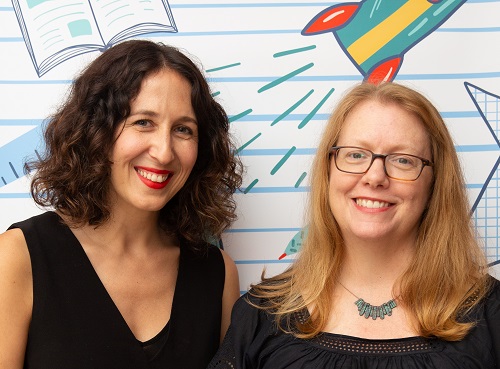Parents Glued to Their Devices During Storytime? How To Encourage Active Participation in Library Programs.
Addressing technology’s negative impact on parent/child engagement and group participation.
These days, it seems like screens are everywhere—and they are. The average adult spends about three hours a day on their smartphone, and 98 percent of households with children zero to eight have mobile devices. While technology connects us, it can distract from those right in front of us. Whether it’s an incoming text, taking and posting pictures, or fielding app notifications—we’re all more distracted now. These interruptions can impact adult social interactions, but the effect on parent/child engagement, dubbed “technoference” by social scientists, is more troubling.
Young children learn best through face-to-face interactions and reciprocal conversations with trusted caregivers, so what happens when adults are digitally distracted? In a 2017 study, researchers found that cell phone interruptions led to infants and toddlers learning fewer words. Another study pointed to consequences for children’s social-emotional development: Babies seven months to two years whose mothers were frequently on the phone played and explored less as they tried to get their mothers’ attention back. They also had difficulties re-engaging in play.
Children’s librarians have seen more phone use by parents and caregivers during library programs, with parents busy scrolling through screens rather than engaging with children during playtime and storytime. Some adults need prompting during activities designed for face-to-face interaction, and they often respond best when they are reminded about the important role they play in their child’s development.

Many librarians make announcements at the start of storytime to discourage or limit phone use. Betsy Diamant-Cohen, executive director of the early literacy program Mother Goose on the Loose, uses a script including these words: “For your child to get the most out of this program, it is important to fully participate. Please put your cell phones away and participate joyfully in all of the activities.”
Lisa Campbell, Reading Rocket coordinator at Mid-Continent (MO) Public Library, uses positive peer pressure. “I emphasize that ‘everyone plays at storytime.’ We try not to use language that calls anyone out for phone usage because I have seen that backfire. We make sure we are always passing out instruments and manipulatives directly to adults who attend.” Linda Ernst, author of several books on lapsit storytimes and a retired children’s librarian from the Mercer Island Library of the King County (WA) Library System, models silencing and putting her own phone away before she leads storytime, encouraging grown-ups to follow suit.
Phone use during programs isn’t all bad, and there are some simple ways to encourage positive use. Many parents and caregivers, particularly English-language learners, use phones to document storytime activities. “I have parents and caregivers who video me so they can do the songs and rhymes with their kids at home,” says Lisa Bintrim, children’s librarian, Canton Branch of the Enoch Pratt Free Library in Baltimore.
Brooklyn Public Library staff note that many nannies are required by employers to take pictures of children during storytime as proof of attendance, which can be a distraction, or a violation of other attendees’ privacy if caught in the shot. Setting aside a designated photo session before or after storytime so kids can be photographed with the librarian, props, and storytime books can help.
It’s important not to judge or shame parents for their phone use, because we don’t know what is going on in their lives. But modeling, gentle reminders, and genial peer pressure can help grown-ups focus on children when there’s technoference. “Kids are more likely to enjoy storytime with an engaged and involved adult,” says Armin Arethna, children’s librarian at Berkeley (CA) Public Library. “They show kids how to do fingerplays or use the musical instruments, they laugh at the right places, and they encourage kids to pay attention too.”
Rachel G. Payne is coordinator of early childhood services at the Brooklyn Public Library. Jessica Ralli is coordinator of early literacy programs at BPL.

RELATED
The job outlook in 2030: Librarians will be in demand
The job outlook in 2030: Librarians will be in demand
ALREADY A SUBSCRIBER? LOG IN
We are currently offering this content for free. Sign up now to activate your personal profile, where you can save articles for future viewing






Add Comment :-
Comment Policy:
Comment should not be empty !!!
Janice Annette
This is a song that I sing before storytime starts.
(In the tune of Here We Go Round the Mulberry Bush)
Parents (clap), this is the way we help our kids, help our kids, help our kids,
This is the way we help our kids in storytime today.
We put away and participate, participate, participate,
We put away and participate... in storytime today.
Posted : Mar 10, 2020 12:32
Sue McCleaf Nespeca
Good article Rachel & Jessica! Especially like that you looked at all angles of this issue. I often get asked questions about how to deal with caregivers having phones, so this is timely.
Posted : Feb 26, 2020 12:23